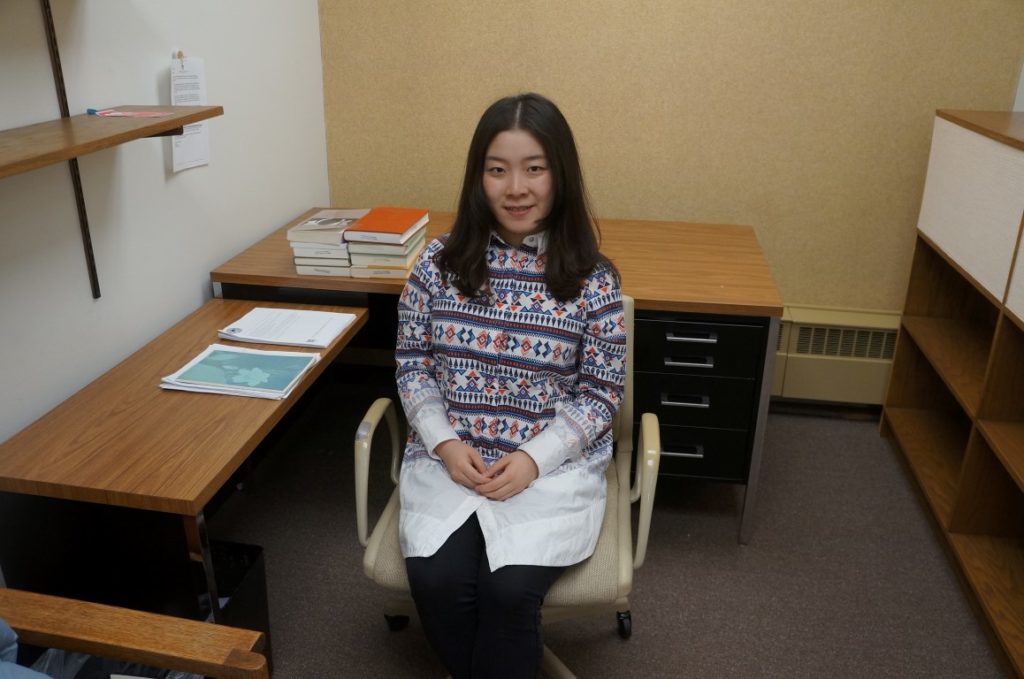Xiaoya Gao is a fifth-year senior from Urumqui, China. In June she will be receiving a BA in History and a BM in Piano Performance. That’s right, she’s almost completed a double-degree!
This industrious researcher is planning to attend graduate school after Lawrence.
Xiaoya took some time from her busy schedule to tell us about what she’s been researching in the Mudd.

Sisi, what’s the focus of your research?
Female health in two late Ming novels: a path to women’s autonomy in a closed society.
What are you hoping to learn or gain?
I hope to learn more about the history of healing in late Imperial China by studying the novels written in late Ming and early Qing, especially the encounters between female patients and their healers.
Why do you think this research is important?
My research is important because female health in novels is a newly touched-upon topic in Chinese medical history. From the novels, one could see “hidden” figures and facts that were not included in official Ming documents and yet existed in the Ming society. Novels have unofficial accounts of history that the “official” history is unable to tell.
In the two novels I’ve studied, the “forbidden practices” of female patients and their healers revealed that women found and wielded their autonomy through an unofficial social system. Also, half of the history of healing is missing if we ignore women’s history of healing. Female reproductive health is significant because it is a tremendous part of women’s life in the Ming dynasty.
How did you become interested in this line of research?
I have always enjoyed taking classes and doing research in women’s history. During my junior year, I took Chinese Women’s History and Women in Early America, and I have been in love with women’s studies ever since. After taking a class on the history of Chinese Medicine and writing a paper on a specific topic I liked, my focus on Chinese women’s medical history in novels became clear.
“Reach out to the library staff when you have questions about citations, or anything related to your research! They are extremely helpful.”
~Xiaoya Gao
What library materials and resources have been the most useful to you in pursuing this research?
Besides the books I used from the Mudd Library, I requested many materials through interlibrary loan. I also found online resources like JSTOR and Historical Abstracts useful.